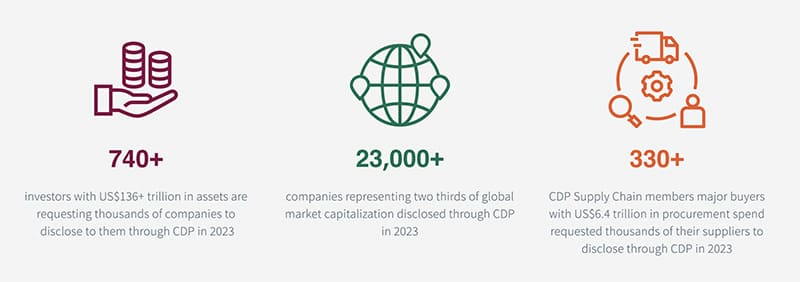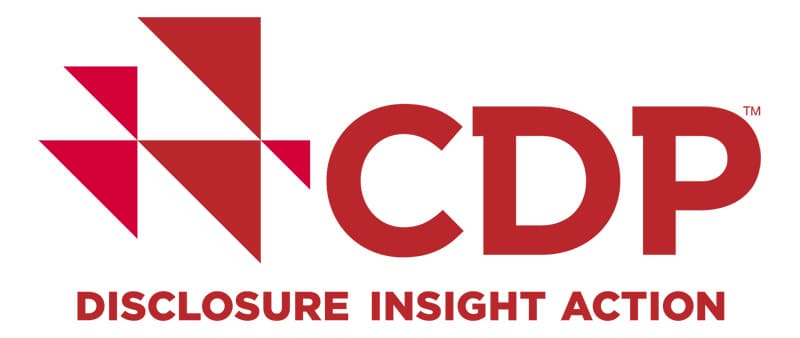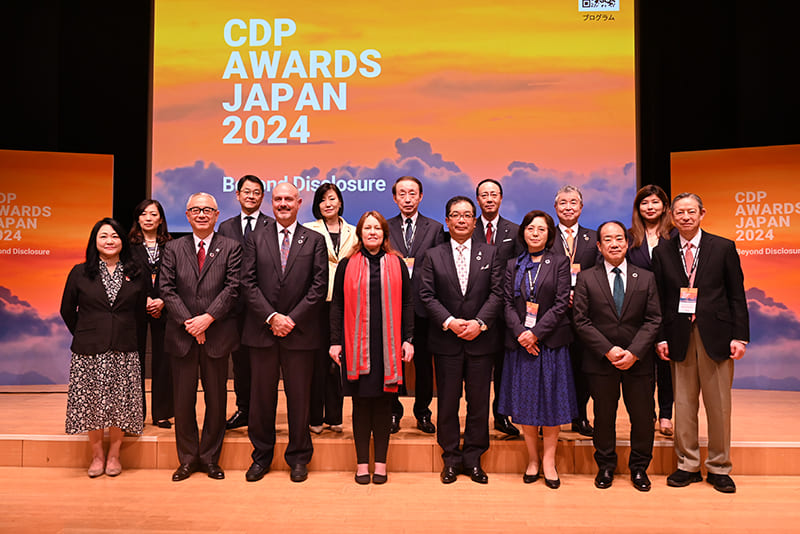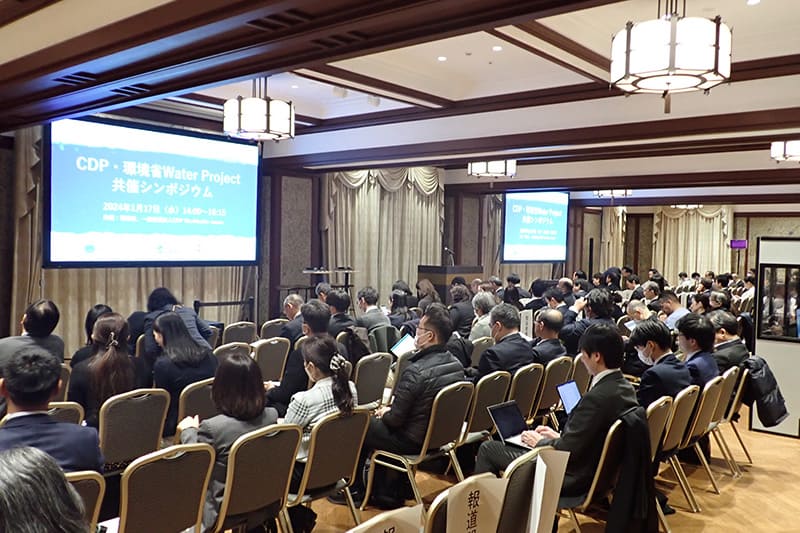March 26, 2024
Decision-useful data is key to a net-zero future

To avert further catastrophic climate impacts, global warming must be capped at no more than 1.5 degrees Celsius above pre-industrial levels, with emissions being rapidly reduced to net-zero and nature fully recovering by 2050. However, current national commitments and policies fall short. They would lead to average temperature increases of 2.4 to 3.1 degrees by 2100, and in many instances even these inadequate pledges remain unimplemented. Efforts must be intensified and progress accelerated, starting with ensuring that high-quality data is disclosed and acted on by the world’s companies, financial institutions and governments.
Immediate action is imperative. Intentions must be translated into concrete plans, complete with specific metrics and evidence of progress toward agreed-upon objectives. Accountability is essential to elevate our ambitions: halving emissions, embracing nature positivity by 2030 and achieving net-zero emissions and full recovery of nature by 2050.
In 2023, the world faced unprecedented environmental challenges. Our planet has just had its hottest year on record — the first where 1.5 degrees was breached across an entire year. The foundation of our response to this crisis must be robust data. Three years into a decade of action, there is still a long way to go, but we did take some clear steps in 2023. More than 23,000 companies, representing two-thirds of global market capitalization, disclosed their environmental data through CDP, a 24% increase from 2022.
Nearly 5,000 organizations disclosed information related to water security, a 23% increase from the previous year. Additionally, 1,100 disclosed on forests, a 10% growth from 2022.
In Japan, disclosure to CDP continues to grow steadily. About 2,000 companies reported in 2023, including 1,100 listed on the Tokyo Stock Exchange’s Prime market. Over 700 disclosed water data and 130 did so on forests. As an indicator of their leading on environmental transparency, Japan now boasts the highest number of companies scoring an A with CDP globally. Its 125 A List companies are comparable to the entire European Union market.
Earning a place on CDP’s A List is about more than just a score. It shows companies are providing top-quality data that equips them and their stakeholders with a holistic view of their environmental impacts. This data serves as a baseline for credible transition planning and enables companies and their investors to turn targets into real action.
More than 4,000 companies have now set science-based targets for reducing emissions through the Science Based Targets initiative, including over 900 in Japan. However, disclosed data still shows clear gaps, with less than half (41%) of companies that disclose to CDP currently reporting Scope 3 supply chain emissions, which outweigh direct emissions by over 11 times. According to CDP data, Scope 3 targets constitute only 15% of all disclosed targets, which shows most companies have far to go if they are to set and achieve science-based targets.
To show a credible path for delivering against these targets, companies must develop and disclose effective climate transition plans that outline clear time-bound actions to transition corporate governance, risk management, financial planning and value chain engagement to achieve emissions reductions in line with science.
For over 20 years, CDP has pioneered disclosure as a business necessity to inform decisions that drive change. In 2023, it launched its award-nominated Corporate Environmental Action Tracker, which makes CDP data more accessible to all stakeholders, letting them follow global progress on corporate climate transition goals, and highlights where action is needed.
However, it also reveals that only 24% of disclosing companies, covering 5% of emissions, are on track to meet their targets. Despite the progress shown by leading companies — including those on CDP’s A List — the overall level of action is insufficient, and we are running out of time to transform our global economy.
CDP also saw a surge in participation from subnational governments disclosing in 2023 through CDP-ICLEI Track, the world’s leading climate reporting platform and progress accountability mechanism. In 2023, over 1,100 cities, states and regions disclosed their climate-related efforts. Among them, 119 cities scored an A, including Tokyo and major cities in Indonesia and, for the first time, Vietnam. This trend underscores the growing momentum of climate action worldwide. The Tokyo Metropolitan Government has now scored an A for three consecutive years.
As the pioneer of environmental disclosure, CDP has always played a foundational role in informing, mainstreaming and standardizing environmental data to enable its use by financial markets, procurement teams and governments. High-quality disclosure is now a business norm, with the CDP cycle of identifying, planning and implementing embedded in sustainability teams and boardrooms around the globe.
CDP has always been supportive of the development of impactful and high-quality disclosure standards and frameworks to provide clarity, increase compliance and support companies in their reporting needs.
High-quality disclosure isn’t just a tool — it is the foundation of our net-zero future. It exposes and keeps corporations accountable for their progress, paving the way for achieving the Paris Agreement goals. No excuses remain for navigating the climate crisis blindly; with credible and consistent data, we can understand our overall trajectory and see where decisive action is needed.

CDP’s role is even more critical in a world of increased scrutiny, standardization and regulation. Only CDP, with the only independent global environmental disclosure system, can rapidly scale the adoption of impactful and high-quality frameworks and standards across the global economy.
In 2018, CDP fully aligned with the recommendations of the U.N.’s Task Force on Climate-related Financial Disclosures, and it is integrating the International Sustainability Standard Board’s IFRS S2 Climate-related Disclosures Standard, the first global baseline standard for climate disclosure. CDP also has in place further strategic partnerships with the EU’s sustainability standard-setting body, EFRAG, and the Taskforce on Nature-related Financial Disclosures in order to further align its questionnaire with emerging regulatory and market best practices.
By embracing impactful and high-quality frameworks, the 20,000 entities (representing half of global market capitalization) that already annually disclose through CDP’s platform will report against these frameworks. Their disclosures will provide data to stakeholders in a standardized, comparable and accessible manner, regardless of geographical or regulatory variations.
Achieving net-zero emissions likewise cannot be done without considering nature. Climate change and the degradation of natural ecosystems are deeply intertwined crises that demand a joint approach. Climate change, while critical, is merely an expression of a broader issue. Approximately one-third of the necessary emission reductions are linked to reforestation and the water cycle. Addressing climate in isolation would still leave people and the economy vulnerable to major disasters.
Nature is both our life-support system and the foundation of our entire economy. At least $53 trillion in annual economic activity is highly or moderately dependent on nature and its services. However, losses persist at alarming rates, with three-quarters of land and sea already altered by human activity and over a million species on the brink of extinction.
To avert catastrophe, the world must act swiftly. By 2030, the world must halve emissions — this is essential to prevent further catastrophic climate impacts. At the same time, deforestation must be reversed, since protecting forests is crucial for storing carbon and protecting biodiversity and water. These actions beyond emissions are non-negotiable to safeguard our planet and economy. That is why goals to achieve net-zero must sit alongside an equally clear objective: net positivity for nature.
Significant progress has, though, been made by the nearly 8,000 companies that disclosed their biodiversity efforts to CDP last year after questions on it were introduced in 2022. The 36 Japanese companies scoring an A for water and the seven with an A for forests are already showing a high level of awareness of their wider risks and impacts.
To ensure that companies are disclosing and acting on all relevant environmental impacts, CDP continues to expand the issues covered in its questionnaire. In 2023, questions on plastics were included for the first time, with over 3,000 reporting data. Now is the time for governments to act. During the U.N. Intergovernmental Negotiating Committee event last November, CDP advocated for mandatory disclosure on corporate impacts within a global plastics treaty. To close the data gap and effectively track progress against targets, governments must agree on a treaty that includes comprehensive mandatory corporate disclosure.
As the climate and nature crises unfold, it is only with reliable, comparable and consistent data that impacts can be understood, measured and acted upon. The system that CDP pioneered isn’t just voluntary anymore — in many places, like Japan, disclosure is becoming the law. And in a data system that is rapidly evolving, CDP is the only organization that can take these standards through a disclosure system and produce usable data sets for the myriad of stakeholders that rely on them.
Companies, financial institutions, cities and national governments must use this data to act faster.


















